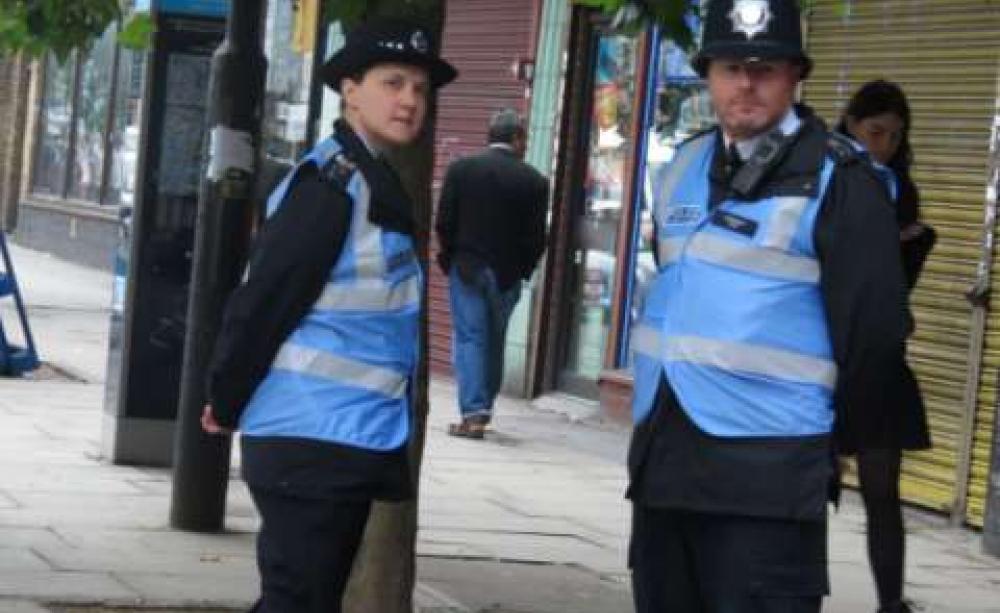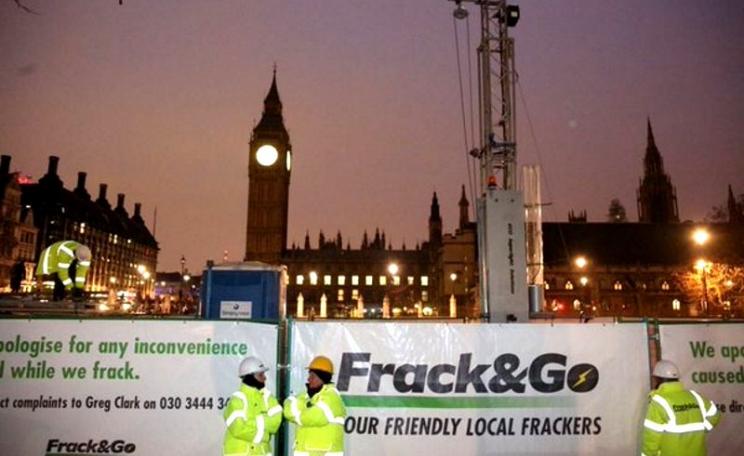PLOs are part of a wider policing strategy to prevent and deter protest and activists should avoid contact with them at all times.
The information comes in a 'peer group review' of Operation Mansell, the policing of last year's anti-fracking protests in Balcombe in Sussex carried out by Hertfordshire Police and Essex Police.
Police Liaison Officers (PLOs) played "a pivotal role in the operation", the review states, by "interacting with the protest organisers".
As a result, "there was intelligence, including open source, to suggest the protest would escalate" from 25 July 2013.
A partially redacted copy was obtained by Ruth Hayhurst of the 'Investigating Balcombe and Cuadrilla' website following a Freedom of Information request.
Its key conclusions have now been publicised in an article published on the website of the Network for Police Monitoring, Netpol.
'Do better next time'
The review does criticise police for not making better use of the information garnered by PLOs, however. It "was not utilised in an effective a manner as possible", it states.
It also complains that it was unclear how PLOs fed back the intelligence they had gathered to their senior officers. The review report concludes: "This is a common issue with usage of PLO teams as a relatively new tactic within UK policing.
"Consideration of the deployment of a dedicated PLO Bronze may help ensure that important intelligence is appropriately considered within the command structure and that an appropriate intelligence sterile corridor exists between those who are engaging directly with protestors and command."
The latest confirmation
According to Netpol, the review provides "the latest confirmation of the role Police Liaison Officers undertake in intelligence-gathering at protests", following the release of Standard Operating Procedures by the Metropolitan Police in 2013.
This document reveals that PLOs "are likely to generate high-quality intelligence from the discussions they are having with protest group members" and are expected to record and share this with "Bronze Intelligence for analysis and dissemination to Silver and the rest of the Command Team (in the same way as any other intelligence)".
According to Netpol, this new evidence of the intelligence responsibilities of PLOs "undermines the assertions made by vocal advocates of Police Liaison Teams".
They cite Clifford Stott's 'Crowd and Conflict Management' consultancy, which claims that PLOs can make a positive impact on protests if there are "transparent operational and structural divisions between PLTs and the criminal intelligence resources applied by the police to protests".
But now we know, says Netpol: "these divisions quite evidently do not exist!"
Just a few teething problems
Only months before the Balcombe protests, Stott and colleagues insisted that despite 'teething' problems (such as PLOs visiting and threatening a Brighton activist at home in 2012),
"the PLT in Sussex ... displayed good practices and outcomes that have had a dramatic and positive impact on the policing of protest in Sussex in line with our arguments concerning their effectiveness".
"The vast majority of protesters at Balcombe, including the 126 who were arrested, would profoundly disagree", says Netpol, which advises:
"PLOs are part of a wider policing strategy to prevent and deter protest and activists should avoid contact with them at all times."
A 'national coordination' on fracking
The review also reveals that a UK-wide policing strategy on unconventional energy protests, such as that under way at Barton Moss near Manchester, is currently under development - and recommends that "lessons learnt" from Balcombe "should be fed into the emerging national coordination on Fracking".







